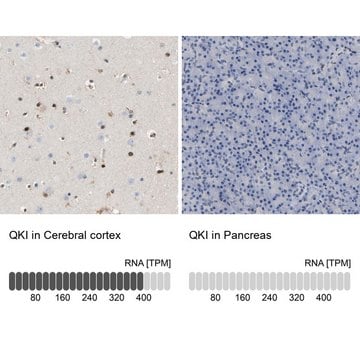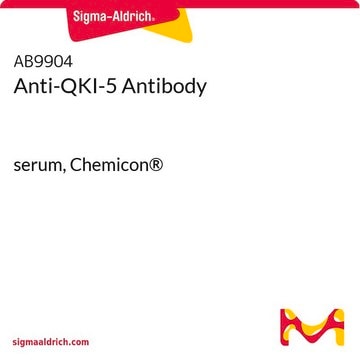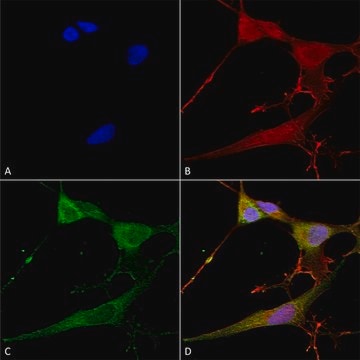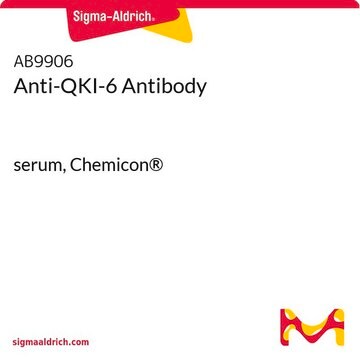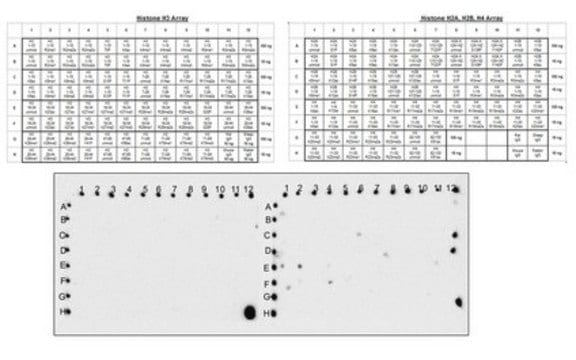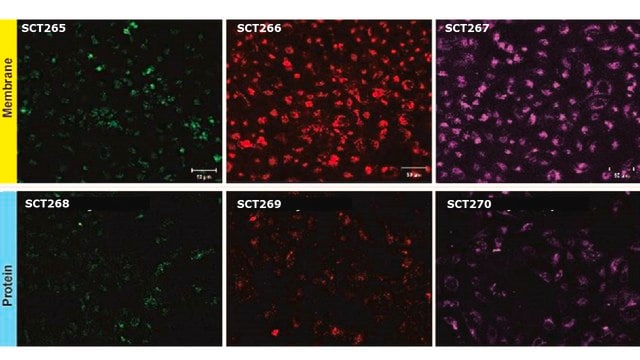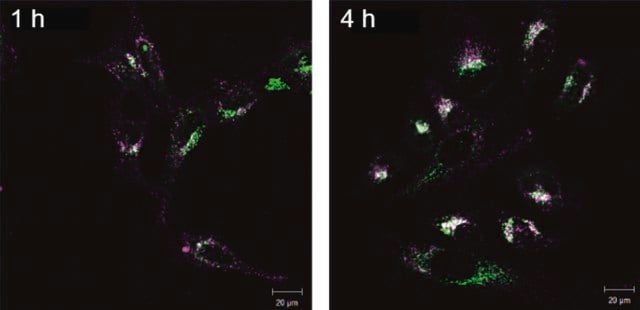MABN624
Anti-Pan-QKI Antibody, clone N147/6
clone N147/6, from mouse
Synonym(s):
Protein quaking, Hqk, HqkI, QKI
About This Item
Recommended Products
biological source
mouse
Quality Level
antibody form
purified immunoglobulin
antibody product type
primary antibodies
clone
N147/6, monoclonal
species reactivity
mouse, rat, human
technique(s)
western blot: suitable
isotype
IgG2bκ
NCBI accession no.
UniProt accession no.
shipped in
wet ice
target post-translational modification
unmodified
Gene Information
human ... QKI(9444)
General description
Specificity
Immunogen
Application
Immunohistochemistry Analysis: A representative lot detected Pan-QKI in rat hippocampus tissue (Prof. J. Trimmer, University of California, Davis.).
Western Blotting Analysis: 2 µg/mL from a representative lot detected Pan-QKI in 10 µg of rat brain tissue.
Western Blotting Analysis: 2 µg/mL from a representative lot detected Pan-QKI in 10 µg of mouse brain membrane tissue.
Western Blotting Analysis: A representative lot detected Pan-QKI in RBM cell lysates and in COS cell lysates transfected with QKI-5, QKI-6, QKI-7, and QKI-7b (Prof. J. Trimmer, University of Califorina, Davis.).
Neuroscience
Developmental Neuroscience
Quality
Western Blotting Analysis: 2 µg/mL of this antibody detected Pan-QKI in 10 µg of rat brain membrane tissue lysate.
Target description
Physical form
Storage and Stability
Analysis Note
Rat brain membrane tissue lysate.
Other Notes
Disclaimer
Not finding the right product?
Try our Product Selector Tool.
Storage Class Code
12 - Non Combustible Liquids
WGK
WGK 1
Flash Point(F)
Not applicable
Flash Point(C)
Not applicable
Certificates of Analysis (COA)
Search for Certificates of Analysis (COA) by entering the products Lot/Batch Number. Lot and Batch Numbers can be found on a product’s label following the words ‘Lot’ or ‘Batch’.
Already Own This Product?
Find documentation for the products that you have recently purchased in the Document Library.
Our team of scientists has experience in all areas of research including Life Science, Material Science, Chemical Synthesis, Chromatography, Analytical and many others.
Contact Technical Service